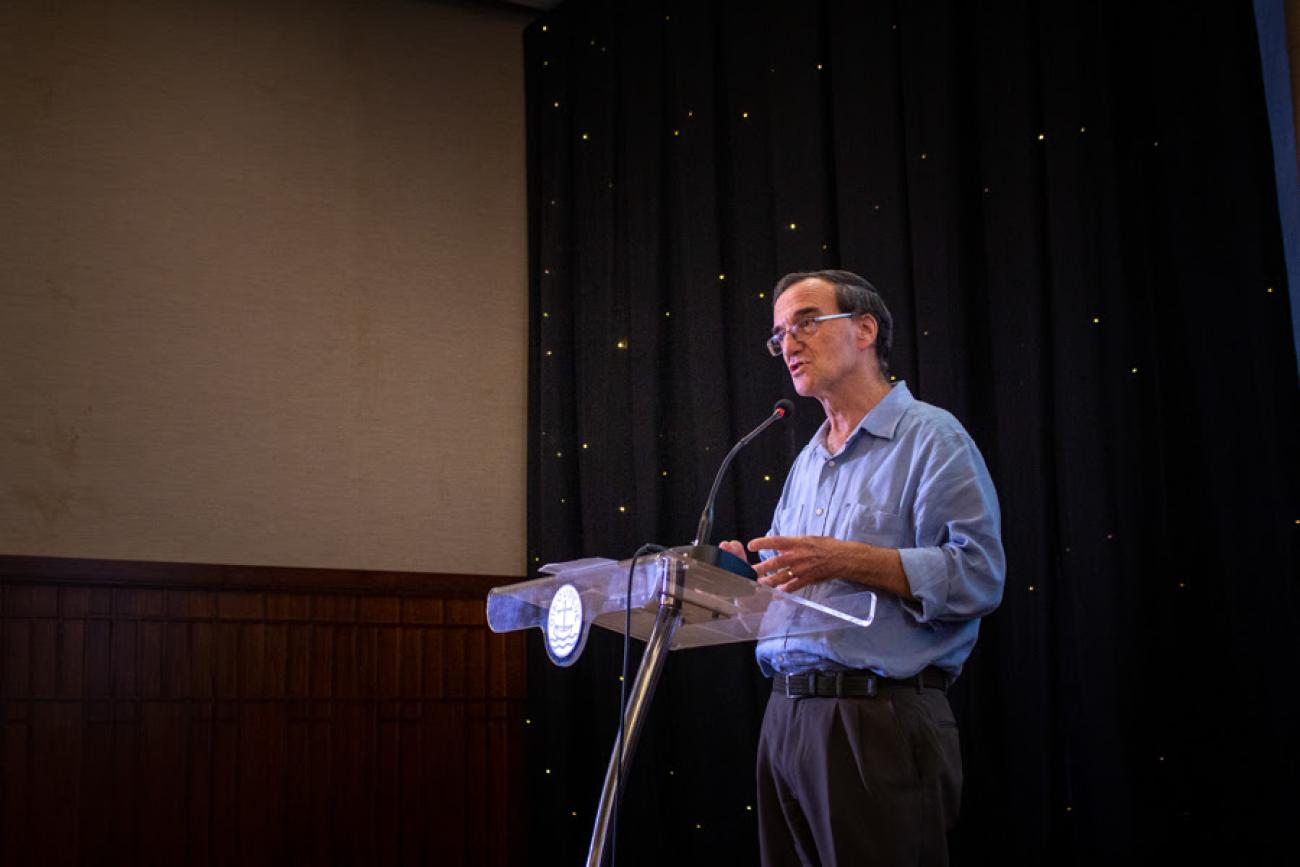Asian church and ecumenical leaders discuss principles, strategies, and tools for good governance

Rev. Terence Corkin from Australia leads two sessions on good governance at the ACELC
Jakarta, Indonesia: “At its heart, governance requires two things—sustainability and effectiveness. Good governance enables us, as church leaders, to continue and serve God’s mission to the best of our ability. We may believe that governance is a ‘secular’ concept and that we have nothing to worry about as ‘we are all Christians here’, but it doesn’t always work out fine!” said Rev. Terence Corkin, an expert on mediation and governance while facilitating sessions on good governance, and added that although organisations could fail for many reasons, the biggest by far was the failure of governance.
Rev. Terence Corkin, a member of the Christian Conference of Asia’s (CCA) Executive Committee facilitated two sessions on good governance at the ongoing Asian Church and Ecumenical Leaders’ Conference (ACELC).
The session on ‘Good Governance: Principles and Values, and Its Relevance for the Church’ on 1 May 2023 covered the foundational concepts related to good governance.
The aspects of good governance were ensuring effective processes and big-picture policies, strong organisational culture and performance, compliance with the law and appropriate risk management, financial control and chief officers’ selection, communication with stakeholders, and strategy formulation and approval.
Rev. Corkin, who is a minister of the Uniting Church in Australia, talked about theological issues related to good governance. “Good governance invites us to reflect upon or reconsider our assumptions. It offers a fresh expression of our faithfulness so that we might live out faith rather than be controlled by the dominant culture. Through theological reflections, we realise that something that at first seems strange or unnecessary is very well aligned with the practices and principles of our Christian faith. Such reflections help us to critique governance and management practices, but also helps to strengthen the care of God’s good gifts.”
Rev. Sujithar Sivanayagam, from the National Christian Council in Sri Lanka, commented on the distribution of power and the encouragement of secondary and tertiary lines of leadership as a form of good governance.
Juliate Malakar, from the Christian Commission for Development in Bangladesh, raised a pertinent question on vertical and horizontal levels of transparency and accountability for good governance.
The second session by Rev. Corkin on the second day of the Conference looked at ‘Tools that Support and Embed Good Governance’.
He made a distinction between governance and management, which were often confused with each other. Governance looked at the organisation’s big picture and ensured that resources were available to accomplish the goals and mission of the organisation. Management, on the other hand, was responsible for the day-to-day running of the organisation and other minute details.
Practices that led to organisational success included strong conflict of interest policies, delegations, position descriptions for key roles, terms of references for committees, agendas, good minute-taking, reports, self-review of the work of boards or committees, and meeting procedures.
Comments and questions were shared by Rev. Rudolf Rahabeat from the Protestant Church in the Moluccas, Rev. Tara Tautari from the Methodist Church in New Zealand, Rev. Fr. Ritchie Masegman from the Episcopal Church in the Philippines, and Bishop Steven Lawrence from the Evangelical Lutheran Church in Malaysia and Singapore.
Rev. Terence Corkin, the principal of Faith-Based Boards which provides education, review, policy development, and mentoring, is an ordained minister of the Uniting Church of Australia.
The sessions were moderated by Bishop Reuel Norman Marigza from the United Church of Christ in the Philippines and Rev. Jacky Manuputty from the Communion of Churches in Indonesia.










